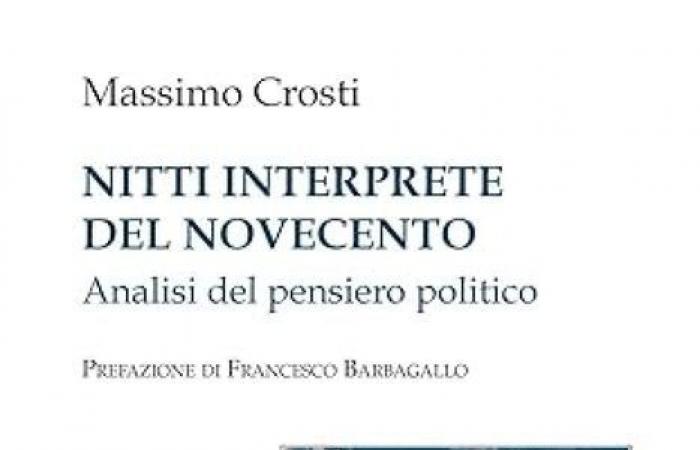MASSIMO CROSTI, NITTI INTERPRETER OF THE TWENTIETH CENTURY (EDITORIALE SCIENTIFIC, PP XXII-218, EURO 16) Even the wider public knows Francesco Saverio Nitti’s activity as a statesman, as minister of the Giolitti governments and as Prime Minister in one of the most complex moments in the history of united Italy, between June 1919 and June 2020. His foresight on major international events is well known, such as the disastrous consequences of the Peace of Versailles, or the need for integration of European states to overcome the crisis of the Old Continent. A smaller public knows his southern journalism activity and above all his scientific production, which made him known throughout Europe with his text on Financial Science, thanks to which he enjoyed an authority abroad as a statesman unknown to other Italian politicians. A book by Professor Massimo Crosti – presented in recent days at the Institute of the Italian Encyclopedia by Giuliano Amato, Francesco Barbagallo, Simona Colarizzi and Stefano Rolando – integrates these historiographical data by focusing on Nitti’s theoretical elaboration in the political field, and in particular on democracy.
Crosti focuses on two theoretical texts: “Social legislation in Italy and its difficulties”, belonging to the first period, when Nitti was actively involved in politics; and “La Democracy”, from the 1930s, during his exile. If the first draft corresponds to the bill to extend universal suffrage to women (the bill passed the House but, after the fall of the Nitti government, it was not approved in the Senate), in the reflection of the second period the awareness emerges that “the democratic systems have established themselves and are destined to extend ever more widely, as they respond to a need for the existence of contemporary societies” starting from that of intervening on negative inequalities, i.e. inequalities of opportunities.
In this sense, the fundamental importance that Nitti attributes for a democracy to the fact that women enjoy full political and social rights is linked to the elaboration of the first period and is linked to two elements that allow the maintenance of a democratic system: that all citizens not only are they equal before the law, but they perceive themselves as such; and that there is “a large number of men of average condition”, while where there is a narrow band of rich people and a large number of poor people, democracy enters into crisis.
Reproduction reserved © Copyright ANSA






